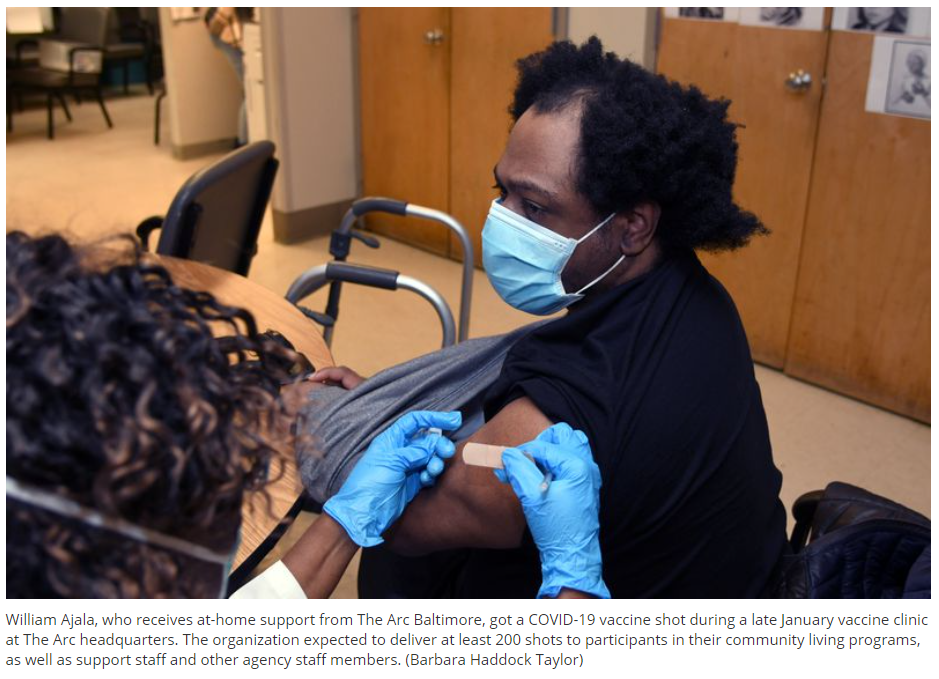
Frustration consumes Nadina Funk when she turns on the news and sees footage of young, healthy-looking people rolling up their sleeves for the COVID-19 vaccine.
Funk, an Overlea resident, has not yet found an appointment for herself or for her 30-year-old son, James, affectionately known as “Jimmy.” He is intellectually disabled, according to Funk, 63, who is his caregiver. And while James is mobile and sometimes verbal, he is not able to live alone.
Some organizations, such as The Arc Baltimore, which offers a range of social and residential services for people with intellectual and developmental disabilities, already have coordinated with federal partners or health departments to bring clinics to their offices and facilities.
Those clinics have provided at least 600 people in The Arc’s community with vaccines so far, said Kathleen Durkin, the organization’s CEO. Many of the individuals supported by the organization are essential workers, she said, making their immunization all the more critical.


